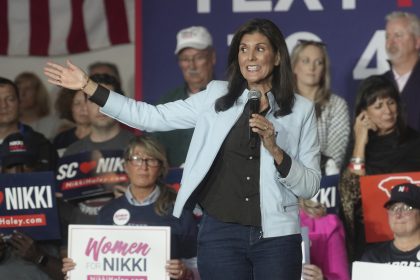Texts Linking to Split Fundraising Pages Not Subject to Joint Fundraising Rules

WASHINGTON — Short code text messages containing links to “split-it” fundraising pages are not subject to joint fundraising rules under the Federal Election Campaign Act, the Federal Elections Commission has held.
The determination came in response to a request for clarification from Maggie for NH, the principal campaign committee of Sen. Maggie Hassan, D-N.H.
Short code text messages, also known as SMS short codes, are messages that rely on five- or six-digit phone numbers and are used by organizations to send text messages at scale.
Recipients of these messages can opt into the marketing program by texting a word or phrase back to the short code.
In essence, the “short code,” is meant to be shorter than normal phone numbers and therefore make the opt-in process easier.
They also enable the sender to shoot out extremely high volumes of text messages in a short period of time.
According to the FEC’s advisory opinion, Maggie for NH maintains a shortcode texting program to send text messages to its supporters on topics relevant to the campaign and to solicit contributions.
“Maggie for NH sends text messages only to individuals who have affirmatively opted in to receive them, either by texting a keyword to the committee’s short code number, or by providing their cell phone numbers to the committee through a form or webpage,” the opinion states.
What the campaign proposed in an Aug. 9 letter to the agency and subsequent communications, was to use its text messaging program to text links to its supporters to its “split-it” fundraising pages on ActBlue.com.
ActBlue’s “split-it” pages allow users to make contributions to multiple federal political committees simultaneously.
Any political committee that has an existing ActBlue account can create a split-it page listing. Another political committee that also has an existing ActBlue account, and users of the split-it page, may make simultaneous contributions to some or all of the listed political committees at the users’ discretion.
Split-it pages allow a user to enter the total amount the user wishes to contribute and will automatically calculate the amount to be allocated to each recipient committee.
Users can change the amounts allocated to each listed political committee and can decide not to contribute any amount to a listed committee.
Funds contributed through a split-it page are transmitted directly from the contributor to each recipient committee according to the terms of the committee’s existing contractual relationship with ActBlue.
Other recipient committees could include federal candidate committees, party committees, or nonconnected political committees; separate segregated funds and non-federal entities will not be included.
In its request for an advisory opinion, Maggie for NH told the agency it would solicit only funds that comply with the source prohibitions and amount limitations of the act and commission regulations.
Maggie for NH also said it would create and administer split-it pages and solicit contributions through them, including in text messages to its supporters, without the involvement of or coordination with other recipient committees.
Finally, the campaign committee said it alone would decide which political committees to list on the split-it pages.
After an analysis, the commission concluded the proposal laid out by the Hassan campaign is not subject to its joint fundraising rules.
Commission regulations specify the requirements that apply when a political committee engages in joint fundraising, pursuant to 11 C.F.R. § 102.17. Among other requirements, the participants in a joint fundraising effort must establish a separate political committee or select a participating committee to serve as their joint fundraising representative.
The participants must also, among other things, enter into a written agreement that identifies the joint fundraising representative and states a formula for the allocation of fundraising proceeds.
The FEC has previously concluded that the mere use of an ActBlue split-it page, by itself, “does not indicate that the recipient political committees have agreed to fundraise jointly or have collectively arranged for the disposition of any contributions raised.”
“Indeed, in the instant advisory opinion request, Maggie for NH specifically states that it will create and maintain split-it pages ‘without the involvement of, or coordination with, the other committees listed on the pages,’ and that ‘Maggie for NH alone’ will decide which political committees to list on the split-it pages,” the advisory opinion states.
“Under these circumstances, where the other recipient committees have no involvement in the creation, modification, or administration of the split-it pages, the commission concludes that Maggie for NH’s use of ActBlue’s split-it functionality would not be joint fundraising under 11 C.F.R. § 102.17.9
“Likewise, the text messages that Maggie for NH proposes to create and send to its supporters independently of other political committees, which would include links to the split-it pages that Maggie for NH creates and administers independently of other political committees, would not indicate that Maggie for NH and the other political committees listed on the split-it pages have agreed to fundraise jointly,” it continues.
“Under these facts, the commission concludes that the proposed text messages containing links to the split-it pages would not constitute joint fundraising and thus are not subject to the joint fundraising regulations,” it says.
Dan can be reached at [email protected] and at https://twitter.com/DanMcCue.






















